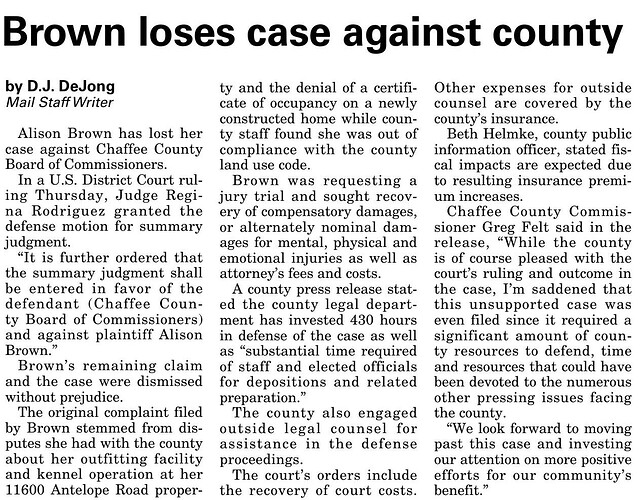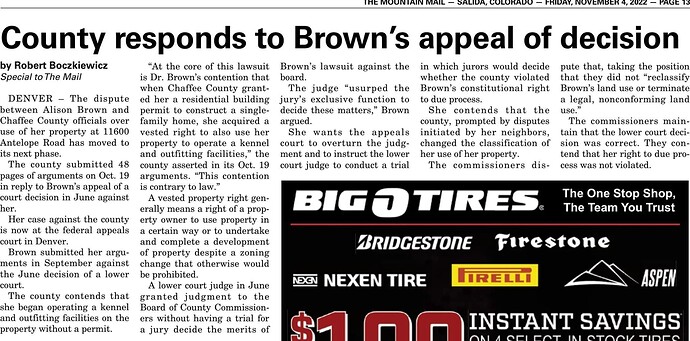Chaffee County MEDIA RELEASE: 24 June 2022
Order for Summary Judgment and Final Judgment Issued In Favor of County for Federal Case
SALIDA, COLO - Chaffee County has received the final judgment in the 2019 case filed by Dr. Alison Brown against Chaffee County Board of County Commissioners alleging deprivation of vested property interests for land use. In the ruling issued by U.S. District Judge Regina M. Rodriguez dated June 23, 2022, the Courts approved a summary judgment in favor of the County, as the Defendant in the case. Related claims against the County from Dr. Brown, the Plaintiff, had been previously dismissed by the federal Courts in 2020.
The case was filed in U.S. District Court by Dr. Brown against the County related to her dispute on proposed property use for a parcel of land she owns on Antelope Road in Chaffee County. In the judgment order, Judge Rodriguez concluded that Dr. Brown had “not established that she had a vested property interest in the right to conduct her intended activities on her land without undergoing the necessary Limited Impact Review,” and that “the Plaintiff’s position is not supported by the record.” The final judgment reinforced the County’s position that it fairly and consistently interpreted and applied the requirements of the county Land Use Code, state statute, and other laws in consideration of Dr. Brown’s land use proposals.
The County legal department invested over 430 hours in defense of the case, in addition to substantial time required of staff and elected officials for depositions and related preparation. Additionally, the County engaged outside counsel for assistance in the defense proceedings. The Court’s final judgment will permit the County to recover costs associated with the court fees. Expenses incurred for outside counsel are covered by the County’s insurance, though fiscal impacts are expected due to resulting insurance premium increases.
County Commissioner and Board chairman Greg Felt commented, “While the County is of course pleased with the Court’s ruling and outcome in the case, I’m saddened that this unsupported case was even filed since it required a significant amount of county resources to defend, time and resources that could have been devoted to the numerous other pressing issues facing the County. We look forward to moving past this case and investing our attention on more positive efforts for our community’s benefit. ”
Final Judgment. ECF 161.pdf (430.2 KB)
Order Grant MSJ-Dsmsl w Prej. ECF 160.pdf (196.2 KB)


